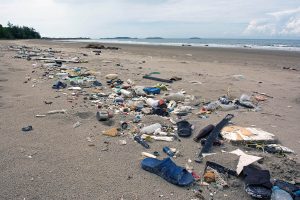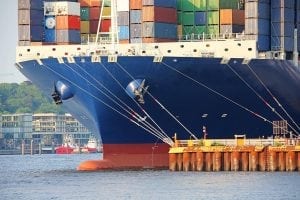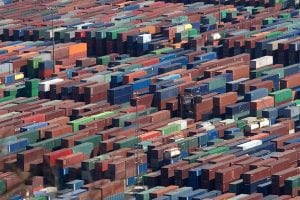
A former plastics-to-oil CEO has been convicted of tax evasion for failing to pay taxes on $14 million he obtained by defrauding investors, according to prosecutors.
 Colin Staub was a reporter and associate editor at Resource Recycling until August 2025.
Colin Staub was a reporter and associate editor at Resource Recycling until August 2025.
A former plastics-to-oil CEO has been convicted of tax evasion for failing to pay taxes on $14 million he obtained by defrauding investors, according to prosecutors.
 A new ocean plastics prevention effort connects brand owners with collected oceanbound material that can be used in manufacturing. A key stakeholder recently described the four-step approach the project will entail, and what that will look like on the ground.
A new ocean plastics prevention effort connects brand owners with collected oceanbound material that can be used in manufacturing. A key stakeholder recently described the four-step approach the project will entail, and what that will look like on the ground.
 An industry-funded ocean plastics prevention initiative has received support from a number of new partners, including brand owners, a chemicals giant and an intergovernmental group.
An industry-funded ocean plastics prevention initiative has received support from a number of new partners, including brand owners, a chemicals giant and an intergovernmental group.
 A bipartisan bill in the U.S. Senate expands efforts to combat marine debris and encourages the White House to work with countries most contributing to the problem.
A bipartisan bill in the U.S. Senate expands efforts to combat marine debris and encourages the White House to work with countries most contributing to the problem.
 Large brand owners and manufacturers have formed an effort aimed at diverting millions of pounds of plastic material that could potentially end up as marine debris.
Large brand owners and manufacturers have formed an effort aimed at diverting millions of pounds of plastic material that could potentially end up as marine debris.
 Multiple efforts that aim to gather information or provide a funding source for ocean plastics cleanup have recently been announced.
Multiple efforts that aim to gather information or provide a funding source for ocean plastics cleanup have recently been announced.

Many groups and organizations made announcements for World Oceans Day, which was observed Friday, June 8. The following is a roundup of some of the key details that have come out of statements and reports in the runup to the celebration.

Many developments related to the Chinese recycling import market have taken place in recent weeks. The following is a look at key updates.

Many exporters of recovered plastics have increased the volume they send to Southeast Asia this year in an effort to fill the void left by China.
 Months after China ramped up restrictions on scrap plastic imports, countries such as Indonesia, Malaysia and Vietnam are initiating similar, if less extensive, policies as officials try to get a handle on massive increases in shipments and improper use of permits.
Months after China ramped up restrictions on scrap plastic imports, countries such as Indonesia, Malaysia and Vietnam are initiating similar, if less extensive, policies as officials try to get a handle on massive increases in shipments and improper use of permits.

